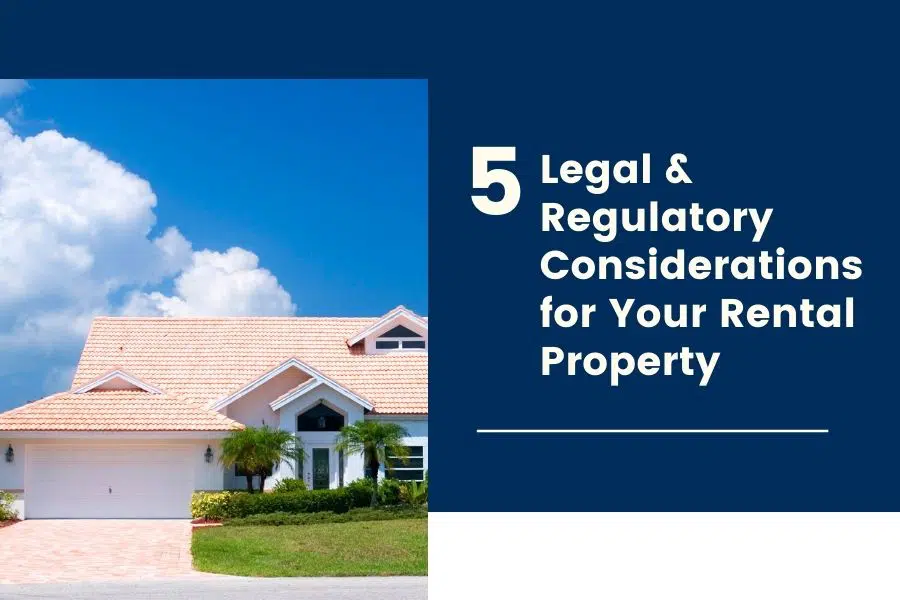
5 Legal and Regulatory Considerations for Your Rental Property
The ongoing coronavirus pandemic has brought up a lot of legal and regulatory questions for landlords surrounding missed rental payments and evictions. With Covid-19, there have been many state-by-state moratoriums enacted to legally delay and suspend the ability for landlords to evict tenants.
With new initiatives and executive orders varying from each county, city, and state, it can be difficult for property owners to keep up with and navigate new regulations.
1. My Residents Can’t Pay Their Rent – What Are My Options?
Your options depend on where your property is located and which eviction moratoriums you are subject to. Your options may include any of the following.
- Some cities are allowing the eviction process to begin.
- Some areas allow you to serve a statutory notice & file an eviction even though you cannot do anything with it for 30, 60, or 90 days. If you choose this option, you cannot accept partial rent payments. If you do, you must start the process over from the beginning.
- Accept partial payments and proceed with the eviction process based on any outstanding balance once eviction moratoriums are lifted.
- Communicate with your residents to gain insight into their situation and find the best possible situation that works for both you and them. You may want to provide payment plans or other beneficial options. Just make sure that if you are accepting payment plans or partial payments, that the resident is very aware that their rent is accruing during the eviction moratorium and that you are willing to work with them on rental payments & outstanding balances.
2. Can I Evict Residents That Can’t Pay Rent?
If your residents cannot pay rent, the first inclination as a property owner is likely to start the eviction process.
However, your ability to evict a resident for non-payment depends on where your property is located, whether you are covered by the Federal CARES Act, or where you must comply with an eviction moratorium in your state, county, or city.
You will need to check all of these regulations and check them off to determine what you can and cannot do.
For instance, some counties may allow you to file an eviction but they won’t issue a summons until the executive order is over.
Some states have already opened back up, allowing evictions, whereas some states are still under a moratorium which will allow you to file to “get in line” but the clock and summons won’t begin until these states have opened up. Other states won’t let you file at all.
If your property is protected by the Federal CARES Act, you cannot evict.
3. Where Do I Find Laws That Apply to My Property?
- Start with the Federal CARES Act.
- Google “eviction moratorium” for your city, county, or state,
- The National Apartment Association has a webpage.
- The Council of State Governments has a webpage.
- The National Governors Association has a webpage.
- The National League of Cities has a webpage.
4. Does the Federal CARES Act Apply to My Rental Property?
The Federal CARES Act applies to all covered dwellings regardless of where you are located and when enacted, has a section that prevents landlords from serving a notice to vacate to initiate eviction for the non-payment of rent. To figure out if your property is covered under the Federal CARES Act, it must meet the following criteria.
- A rental property that is receiving federal subsidies.
- A rental property that is a part of the Section 8 Program.
- A rental property that has a federally backed mortgage which would be a mortgage through Freddie Mac or Fannie Mae.
You will need to go through your mortgage documents to see if you have a federally backed mortgage. If your property is covered by the Federal CARES Act, then you cannot file a notice for eviction nor can you charge any late fees.
If you do not fall within the above criteria and your property isn’t a covered dwelling under the Federal CARES Act, then you will need to look at the state, county, and city-wide initiatives to determine what you can and cannot do.
5. Do Residents Have Other Covid-19 Protections?
There are several protections that your residents may qualify under, that you will need to look at. The first is the Federal CARES Act as this applies to all properties regardless of where you are located in the United States.
If your dwelling is covered under this act, you cannot file a notice to vacate for non-payment of rent nor can you charge any late fees. The tenant doesn’t have to do anything to be qualified under the Federal CARES Act.
The second thing to look at is any state orders. These are given by the governors of the state and may include initiatives for eviction moratoriums. These vary from state to state and may be similar to the CARES Act.
They may have various stipulations such as not being able to initiate eviction or serve a notice at all or it may say that the courts won’t issue a summons but you can start the process.
The third thing to look at is if your state does not have an order, you look at the county and/or the city.
These regions may have their own protections in place for residents who cannot make rent payments at this time, so you will need to flesh out which level applies to you if one does at all.
How Long Do These Executive Orders Last For?
For the Federal CARES Act, there is typically an end-date put in place but extensions are possible. For State-wide executive orders, these are in place for 30-days unless they are extended.
Landlords should be aware of expiry dates, updates, extensions, and new initiatives being enacted.
Need help with your South Florida rental property? Contact us today!


